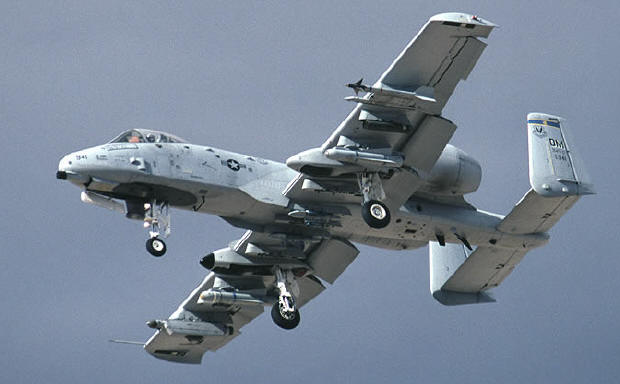|
|
| Fairchild-Republic
A-10
Thunderbolt |
|
 |
The A-10 is the first USAF aircraft
designed specifically for close air support of ground forces. It
is named for the famous P-47
Thunderbolt, a fighter often used in a close air support
role during the latter part of WW II. The A-10 is designed for
maneuverability at low speeds and low altitudes for accurate
weapons delivery, and carries systems and armor to permit it to
survive in this environment. It is intended for use against all
ground targets, but specifically tanks and other armored
vehicles. The Thunderbolt II's great endurance gives it a large
combat radius and/or long loiter time in a battle area. Its
short takeoff and landing capability permits operation from
airstrips close to the front lines. Service at forward area
bases with limited facilities is possible because of the A-10's
simplicity of design.The A-10 and OA-10 Thunderbolt IIs
are the first Air Force aircraft specially designed for close
air support of ground forces. They are simple, effective and
survivable twin-engine jet aircraft that can be used against all
ground targets, including tanks and other armored vehicles. The
primary mission of the A-10 is to provide day and night close
air combat support for friendly land forces and to act as
forward air controller to coordinate and direct friendly
air forces in support of land forces. It has a secondary mission
of supporting search and rescue and Special Forces
operations.
The first production A-10A was
delivered to Davis-Monthan Air Force Base, Ariz., in October
1975. It was designed specially for the close air support
mission and had the ability to combine large military loads,
long loiter and wide combat radius, which proved to be vital
assets to America and its allies during Operation Desert Storm.
In the Gulf War, A-10s, with a mission capable rate of 95.7
percent, flew 8,100 sorties and launched 90 percent of the
AGM-65 Maverick missiles.
|
|
|
|
